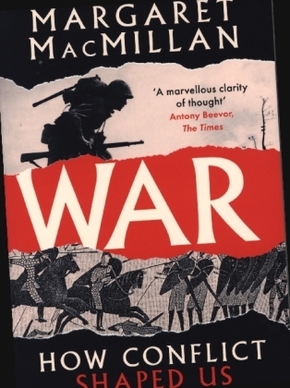
War - How Conflict Shaped Us
| Verlag | Profile Books |
| Auflage | 2021 |
| Seiten | 336 |
| Format | 12,8 x 19,6 x 2,4 cm |
| B Format Paperback | |
| Gewicht | 300 g |
| Artikeltyp | Englisches Buch |
| EAN | 9781788162579 |
| Bestell-Nr | 78816257UA |
How the human history of conflict has transformed the world we live in - for good and evil.
§New York Times 10 Best Books of 2020
Sunday Times best books for Autumn 2020
Guardian critics' pick for Autumn 2020
Wall Street Journal notable book of 2020
The time since the Second World War has been seen by some as the longest uninterrupted period of harmony in human history: the 'long peace', as Stephen Pinker called it. But despite this, there has been a military conflict ongoing every year since 1945. The same can be said for every century of recorded history. Is war, therefore, an essential part of being human?
In War, Professor Margaret MacMillan explores the deep links between society and war and the questions they raise. We learn when war began - whether among early homo sapiens or later, as we began to organise ourselves into tribes and settle in communities. We see the ways in which war reflects changing societies and how war has brought change - for better and worse.
Economies, science, technology, medicine, culture: all are instrumenta l in war and have been shaped by it - without conflict it we might not have had penicillin, female emancipation, radar or rockets. Throughout history, writers, artists, film-makers, playwrights, and composers have been inspired by war - whether to condemn, exalt or simply puzzle about it. If we are never to be rid of war, how should we think about it and what does that mean for peace?
Rezension:
Only an historian with MacMillan's comprehensive knowledge, command of sources, clarity of thought, and artful writing could succeed so brilliantly with one volume on this sweeping topic. Robert B. Zoellick, former President of the World Bank
